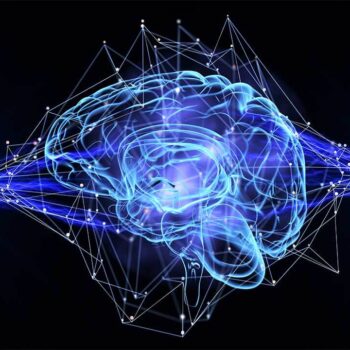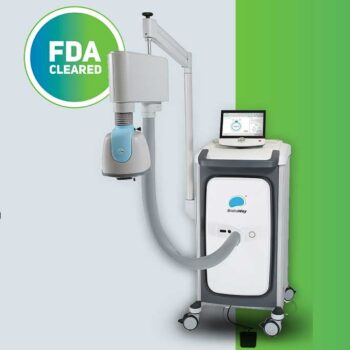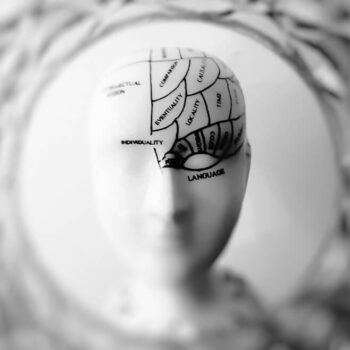TMS
Request an Appointment
Transcranial Magnetic Stimulation (TMS) Therapy
TMS therapy has transformed the lives of millions of people, even those who have found little success using medications such as antidepressants. With TMS, remission and mental well-being is possible.
What is Transcranial Magnetic Stimulation (TMS) Therapy?
Transcranial Magnetic Stimulation (TMS) therapy is an FDA-approved, patented technology that has proven to be a highly-effective alternative approach to mental health treatment, most notably of Major Depressive Disorder. This non-invasive therapy is safe and comes without any lingering, unpleasant side effects that many suffering from mental health disorders experience with other treatments and medications. Moreover, TMS treatments are quick and convenient, allowing patients to return to normal activity following each session.
How Does TMS Work?
TMS treatment works by improving electrical brain activity. Many mental health disorders can be attributed to problems in the way neurotransmitters send signals in the brain. To treat these pathways, coils structured into a helmet that wraps around a patient’s head emit brief magnetic pulses to stimulate neurons in targeted areas of the brain. Over time, TMS therapy promotes healing in the brain’s electrical system and restores proper functioning.
TMS therapy has seen complete remission rates of over 50% with 75% of patients having a positive response to treatment. In addition, TMS therapy has proven effective even when medications have not. The two types of TMS offered by Restorative Brain Center are Repetitive Transcranial Magnetic Stimulation (rTMS) and Deep Transcranial Magnetic Stimulation (dTMS)
At the Restorative Brain Center TMS treatment center, sessions are a breeze! Each patient typically benefits most from a 20-minute session once a day for 4-6 weeks. We use Brainsway’s and Magventure’s effective technology, which ensures these sessions are nearly 50% shorter than those of other TMS treatments, meaning you can spend less time receiving treatment and more time feeling better.
You can expect the following during each session:
You’ll be seated comfortably with a cushioned helmet or a figure 8 coil placed by your head. This helmet will generate magnetic fields, similar to those used in magnetic resonance imaging (MRI) systems. You may experience mild pain or discomfort in the area being treated ment area, but that usually only occurs during sessions in the first week of treatment. After a brief 20 minutes, you’ll be finished with the treatment and ready to drive, exercise, and resume normal activity. That’s it!
TMS therapy delivers:
- Fast results
- Non-invasive treatment
- Minimal discomfort
- No need for medication
- No major side effects
- Across testing in clinical trials, TMS therapy has been found to be safe and well-tolerated.
- TMS treatment does not cause any systemic side effects (side effects that can occur when medication enters your bloodstream).
- Minor side effects include temporary, mild pain or discomfort in the treatment area during a session, but this usually dissipates after the first week of treatment.
- Other side effects may include jaw pain and muscle twitching.
- Patients with metal implants in or around the head should not receive TMS treatment.
TMS therapy can help treat the following conditions:
- Major Depressive Disorder
- Generalized Anxiety Disorder
- Post-traumatic Stress Disorder (PTSD)
- Obsessive-compulsive Disorder (OCD)
- Addiction
rTMS Therapy & Treatment
MagVita TMS Therapy® system is a complete system for effectively treating depression. It has been FDA cleared for “treatment of Major Depressive Disorder in adult patients who have failed to receive satisfactory improvement from prior antidepressant medication in the current episode” and CE approved for “treatment of Major Depressive Disorder in adult patients who have failed to achieve satisfactory improvement from two prior antidepressant medications, at or above the minimal effective dose and duration in the current episode”.
Suicidal Ideation
This treatment is for those who have treatment by medication resistance.
What is Repetitive Transcranial Magnetic Stimulation (rTMS) Therapy?
Repetitive Transcranial Magnetic Stimulation (rTMS) is a clinically-proven therapy for Major Depressive Disorder. It is an FDA-approved therapy in which a cranial device delivers magnetic pulses to targeted neurons that regulate the mood. This non-invasive magnetic activity has been used to help patients overcome severe depressive disorders.
Since 1992, MagVenture has been the leading researcher and provider of rTMS therapy devices, and Restorative Brain Center is a proud partner, delivering fast results to our patients.
How Does rTMS Work?
rTMS works by delivering painless, targeted pulses of magnetic energy via electromagnetic coils. These coils are placed directly on your head and are focused on the part of your brain that regulates mood. By stimulating this part of your brain, new connections and pathways are formed, relieving depression symptoms for most patients.
Each rTMS treatment is customized for you. During your first appointment, your Restorative Brain Center doctor will discuss your symptoms and analyze where to place the MagVenture TMS.
Once placed, your therapy will last between 30 and 60 minutes. During this therapy, you’ll be awake, alert, and able to relax. Afterward, you can go about your day as usual. Side effects are mild and include a headache, lightheadedness, and general discomfort. Many patients see results in as little as two weeks.
In a 2010 study, the first round of rTMS therapy was found to be successful for 14 percent of patients; in the second round of rTMS, it increased to 30 percent.
For some people with depression, traditional treatments aren’t successful. MagVenture’s rTMS treatment is approved by the FDA for depressed patients who do not respond to at least one antidepressant medication. Contact us to learn more about this treatment option and how it may benefit you or a loved one.
rTMS may help with the following conditions:
- Major Depressive Disorder
- Generalized Anxiety Disorder
- Post-Traumatic Stress Disorder (PTSD)
- Obsessive-Compulsive Disorder (OCD)
- Addiction
dTMS Therapy & Treatment
Brainsway’s patented breakthrough technology launches a new era in brain disorder treatment. A non-invasive, yet highly effective solution, Brainsway can make a difference in the wellbeing and health of millions of patients worldwide.
What is Deep Transcranial Magnetic Stimulation (dTMS) Therapy?
Deep Transcranial Magnetic Stimulation (dTMS) is a non-invasive therapy in which magnetic energy effectively reaches your brain’s neurons and safely stimulates them. This stimulation has been clinically proven to help patients with a number of mental health conditions, such as OCD, depression, anxiety, PTSD, and addiction.
The current leader in dTMS therapy is Brainsway, whose comfortable helmet contains a powerful H-Coil. This H-coil maximizes deep brain magnetic stimulation for better results
How Does dTMS Work?
dTMS effectively reaches your brain’s mood regulation system and helps to restructure connections and neural networks. This network restructuring may help improve depressive and irregular brain conditions.
dTMS treatment programs are available in outpatient clinics and only require 20 minutes of active treatment. During this time, a cushioned helmet is fitted to your head and deep brain magnetic stimulation begins. Once finished with treatment, you can go about your day as normal. Pain-free, dTMS treatments typically take place over a six-week period.
Ask your doctor about the use of medication during and after dTMS treatment. The most common side effects include headache and lightheadedness.
In clinical trials, Brainsway dTMS was a more effective treatment option than traditional figure-8 TMS coils. dTMS has fewer side effects than most prescribed medications and works better than counseling alone.
If you are suffering from one or more of the following conditions, dTMS may be a viable option for you.
- Major Depressive Disorder
- Generalized Anxiety Disorder
- Post-Traumatic Stress Disorder (PTSD)
- Obsessive-Compulsive Disorder (OCD)
- Addiction





